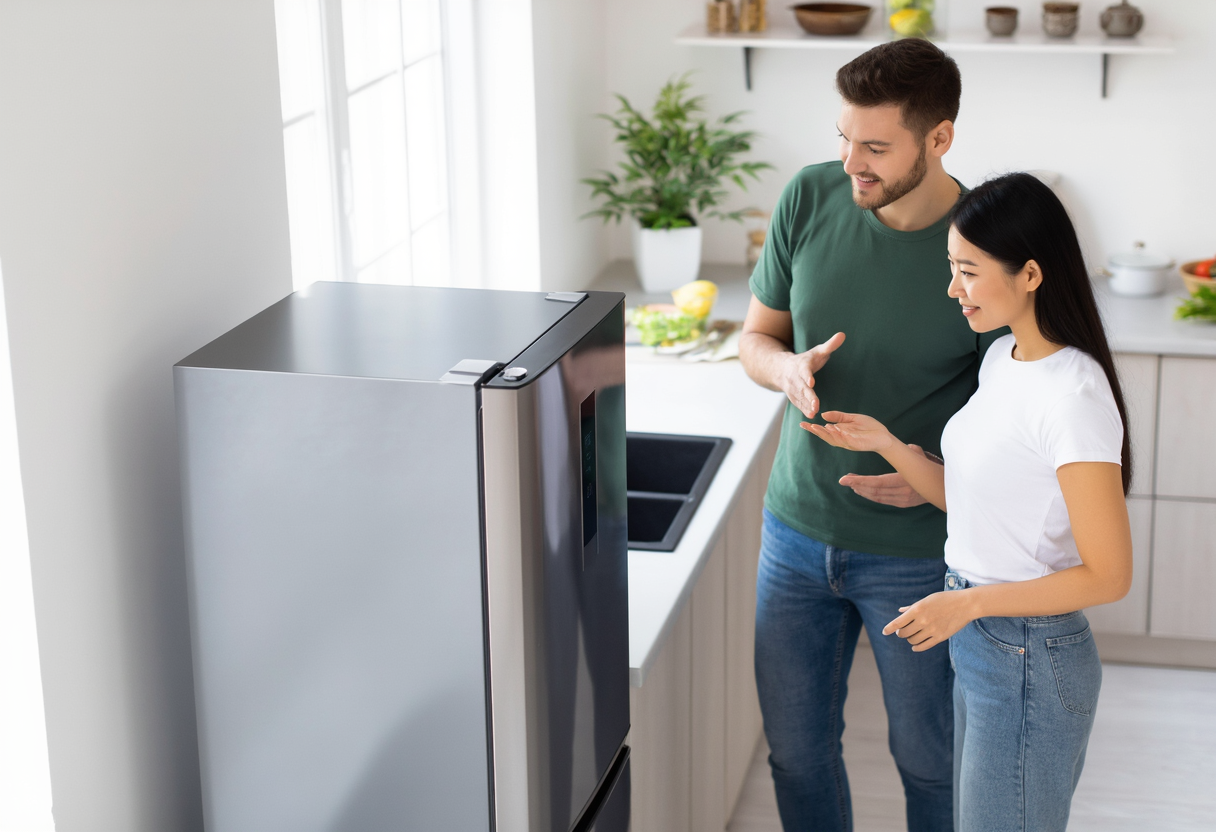Are Smart Refrigerators Worth the Investment? Pros and Cons
Choosing to invest in smart refrigerators comes with its share of advantages and disadvantages. On one hand, these technologically advanced appliances can enhance kitchen functionality and meal planning efficiency. On the other hand, challenges such as high costs and complexity may deter some consumers. This article analyzes both sides, helping you make informed decisions about smart refrigerators in relation to your personal needs and preferences. From energy savings to cybersecurity concerns, we delve into the critical factors that determine their value in your home.
The Allure of Smart Refrigerators
Smart refrigerators captivate attention with their modern features and advanced technology, drawing in consumers seeking a streamlined lifestyle. They are not merely about keeping food cold; they provide connectivity and functionality that make them enticing additions to any kitchen. These appliances often include features such as touchscreen controls, integrated recipes, and connectivity with other smart home appliances, which can significantly enhance the cooking experience. For families that prioritize meal organization and healthy eating, the inventory management feature of _smart refrigerators_ becomes a valuable asset, helping to track expiration dates and create shopping lists directly from the device. The allure is clear, yet understanding whether these upgrades justify the investment is crucial for potential buyers exploring options for their kitchens.
Cost Considerations: Investment vs. Benefits
The price point of smart refrigerators can be one of the biggest hurdles for prospective buyers. While traditional units are available at a range of prices, the upfront cost for _smart refrigerators_ can be substantially higher. This raises a fundamental question: are the added features worth the financial commitment? On the positive side, the potential for energy savings through energy-efficient models can offset initial costs over time, leading to lower utility bills. In many cases, smart refrigerators also include warranties and long-term service contracts. However, it's vital to calculate the long-term return on investment by analyzing expected durability and potential savings against the appliance cost. This comprehensive approach helps inform whether the leap into smart technology aligns with one's financial goals and household requirements.
The User Experience: A Double-Edged Sword
While _smart refrigerators_ promise to simplify kitchen tasks, user experiences can vary greatly. On the one hand, customers rave about the convenience of managing foodstocks and meal planning from smartphones or tablets. The ability to remotely check inventory or get reminders about expiration dates enhances the cooking experience for many. However, others face frustrations related to connectivity issues, software updates, or learning curves associated with using new technology. For non-tech-savvy individuals, transitioning to a _smart refrigerator_ can feel like a daunting task. Moreover, the reliance on technology raises concerns regarding potential glitches or cyber vulnerabilities, an aspect that could deter cautious users from embracing these modern appliances. This nuanced user experience defies a one-size-fits-all answer regarding the true value of owning a smart refrigerator.
Environmental Impact and Sustainability
In today's eco-conscious society, the environmental implications of appliances cannot be overlooked. Many _smart refrigerators_ are designed with energy efficiency in mind, utilizing advanced cooling technologies that minimize energy consumption and reduce greenhouse gas emissions. These models not only align with personal energy-saving goals but contribute positively to the global movement toward sustainability. However, consumers should be aware of the environmental costs associated with manufacturing and disposing of advanced electronic appliances. Additionally, the integration of these devices into smart home ecosystems can lead to further energy savings as appliances communicate effectively to synchronize energy use. By consciously selecting energy-efficient options, users can make informed choices that resonate with their values regarding sustainability while assessing the true worth of a smart refrigerator.
Evaluating the Necessity of Smart Refrigerators in Daily Life
The decision to install a _smart refrigerator_ often boils down to individual lifestyle choices and preferences. For tech enthusiasts, the allure of integration and automation can present a thrilling opportunity to customize their cooking experience. However, for individuals who prioritize simplicity and traditional methods, these devices may not hold the same appeal. Understanding personal cooking and lifestyle habits is essential, as smart technology may streamline certain operations while complicating others. Some consumers may find immense value in the advanced features, while others might prefer sticking with conventional refrigerators. Ultimately, analyzing how a smart refrigerator fits into daily routines will guide consumers toward a choice that optimally suits their needs without unnecessary complexities.
Conclusion: Making an Informed Decision on Smart Refrigerators
In conclusion, the value of _smart refrigerators_ is influenced by a variety of factors, including cost, user experience, and sustainability. While the benefits such as food management, connectivity, and energy savings are compelling, challenges related to expenses, technology, and personal preference can complicate the decision. By weighing both pros and cons thoughtfully, consumers can better understand whether investing in a smart appliance aligns with their kitchen needs and lifestyle. Embracing modern technology in the form of smart refrigerators can yield numerous advantages but requires careful consideration of personal goals, cooking habits, and overall budget. Navigating this complex landscape enables individuals to make informed appliance choices that enhance their culinary experiences.
